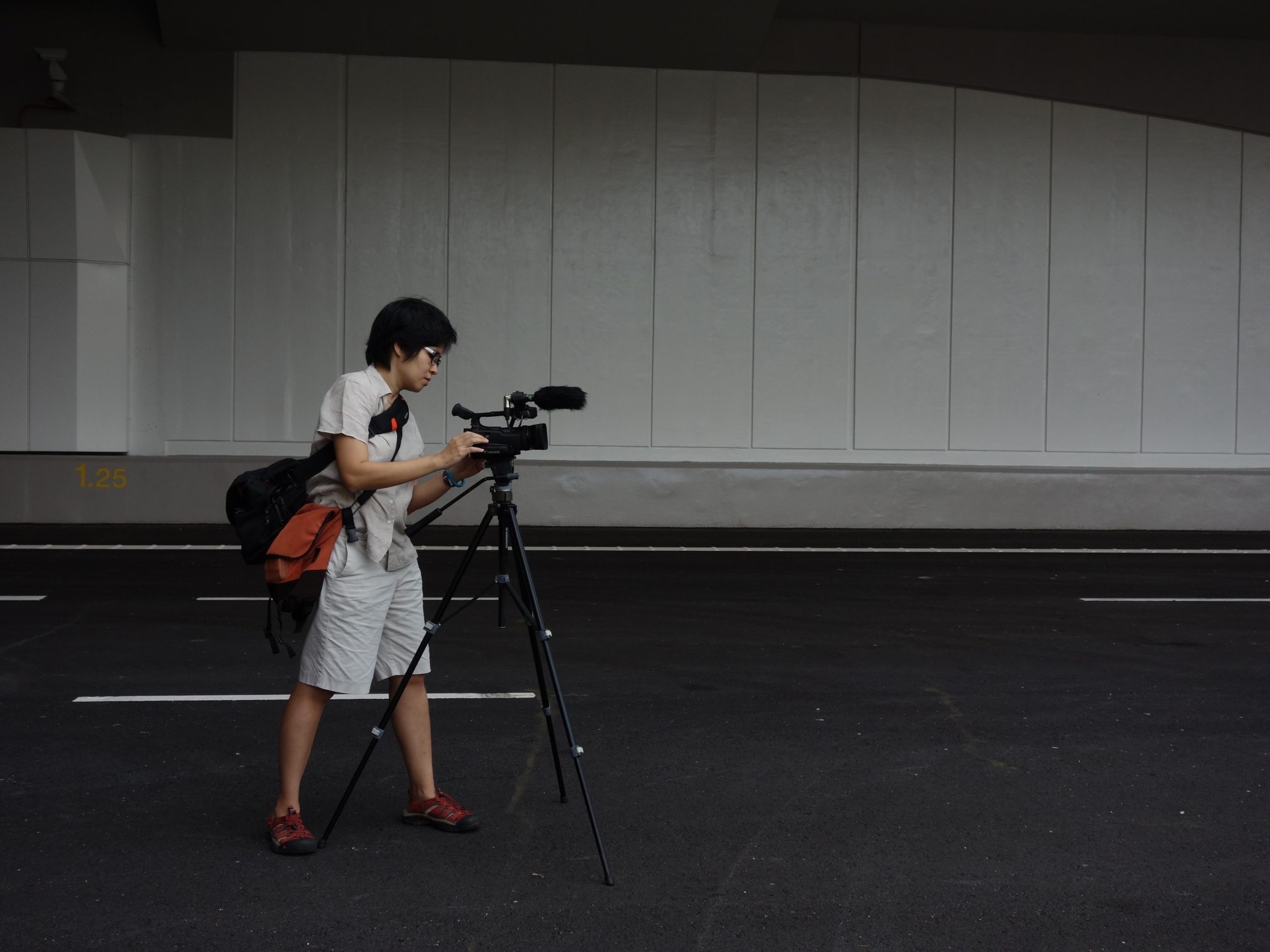The film combines original material with archival footage and interviews. And it feels, variously, like the subjects Tan follows exhibit a quiet defiance in their right to perambulate.
“Walk walk is a documentary about people who walk by choice and it’s sited near [and on] the Rail Corridor, because walking is one of the main activities along it,” says Tan in a video call from Singapore.
“I wanted to use the idea of walking to investigate what it could mean beyond just a utilitarian way of walking. I show performance artist Amanda Heng, who walks backwards, with a shoe in her mouth, as a protest against the mass media’s representation of women.”
‘Rebel’ Singaporean director on Southeast Asian cinema’s ‘exciting’ future
‘Rebel’ Singaporean director on Southeast Asian cinema’s ‘exciting’ future
It’s a striking image, but, somewhat eccentrically, walk walk is accessible in just one Singaporean location.
“The only way people can see the film is by going to the Kampong Bahru Bus Terminal – there is no other way, for two years,” says Tan. “It’s going to run for that long in a cinema converted from a ticket office in a bus terminal.”
The work’s inaccessibility for its potential audience raises questions about the ironic conjunction of a lack of freedom of viewability choice concerning a film showing only in a transport hub – which promises freedom of movement.
I wish we had more of an underground. The underground is two inches down!
Nevertheless, Tan’s body of work is otherwise easy to find, on Vimeo, YouTube or Netflix (Southeast Asia region) or at tanpinpin.com.
Her self-assessment is a self-effacing one. “I would say I’m a Singapore director and I have been making work, mainly documentaries, about Singapore for the past 30, almost, years,” which doesn’t even hint at the awards, international screenings and film festival garlands that adorn her career.
“I’m an independent director,” she adds, “meaning I’m not working for a TV station and the works I produce are creative documentaries – not the Discovery Channel or National Geographic kind. I am interested in engaging audiences in an immersive way.

“My topics relate to Singapore and Singapore history and way of life; although they have been quite local in theme they have been picked up by festivals all over the world. If people want an insight into what Singapore is really like, I always feel they can get it from its arts, theatre, independent films, even novels.”
While a long-term job at a major company was never Tan’s ambition, a career landmark was realised thanks to the Discovery Channel’s open call, in 2001, for documentaries about Asia.
“The first film I made for them won a Student Academy Award for Best Documentary,” she says. The film, Moving House, based on her earlier work of the same name, follows a family exhumation of relatives’ remains, with a cemetery being sacrificed for a housing development.
‘Making it right’: Shogun’s writers and producers on the Disney+ series
‘Making it right’: Shogun’s writers and producers on the Disney+ series
“To Singapore, with Love is banned in Singapore,” says Tan. “You can have a copy of it, but you can’t screen it for money and you can’t have a public screening. But if you were to have a bunch of friends [over] to watch it in your living room, that should be fine. So it’s different from some works, the mere possession of which would get you into trouble – it’s a small consolation!”
The film features political dissidents and former activists who fled into exile from the 1960s to the ’80s; and like all of Tan’s documentaries it was driven by what she characterises as a persistent need to ask and answer questions.
‘I get to die!’: Jean Yoon of Kim’s Convenience on new Netflix sci-fi role
‘I get to die!’: Jean Yoon of Kim’s Convenience on new Netflix sci-fi role
“For To Singapore, with Love, I always wanted to know what it was like not to be able to come back to Singapore. Or what Singapore looks like from the outside. I think the [ruling] was that it undermined national security; my sense of it was that – this is purely my view – it questioned the application of the Internal Security Act [enacted in 1960 to give the government power to indefinitely detain people to prevent threats to national security] by using detention without trial on political opponents, rather than for actual security reasons.”
Controversy, however, is the exception. “Filmmaking is a way for me to find community,” says Tan. “It’s almost an excuse to go out to talk to people and ask about their interests. Maybe to find people who think the way you do.”
Were it to be adopted widely, that approach might fill a perceived gap.
“I think the film scene in Singapore …” she pauses. “I wish we had more of an underground,” Tan says, laughing. “The underground is two inches down!”







